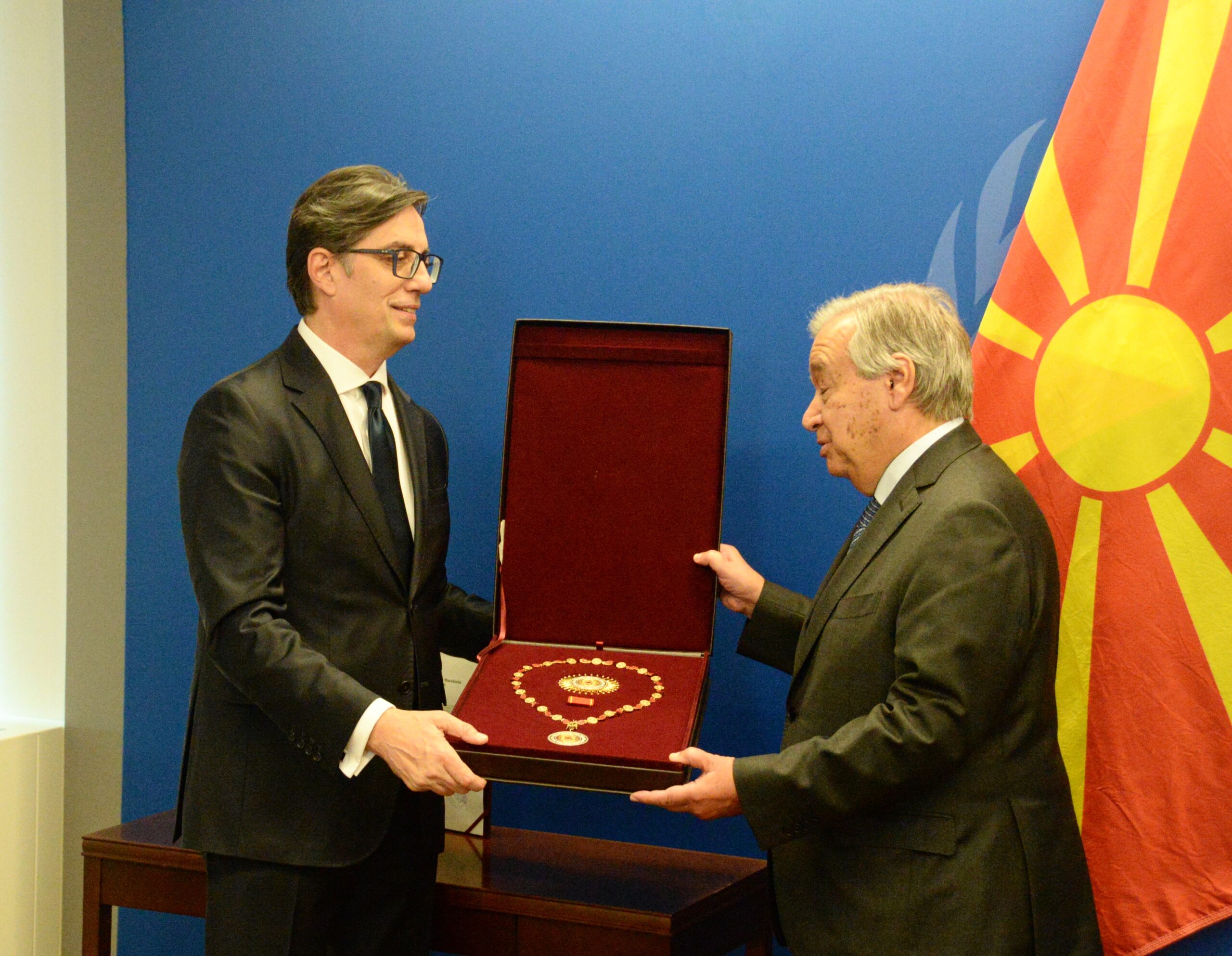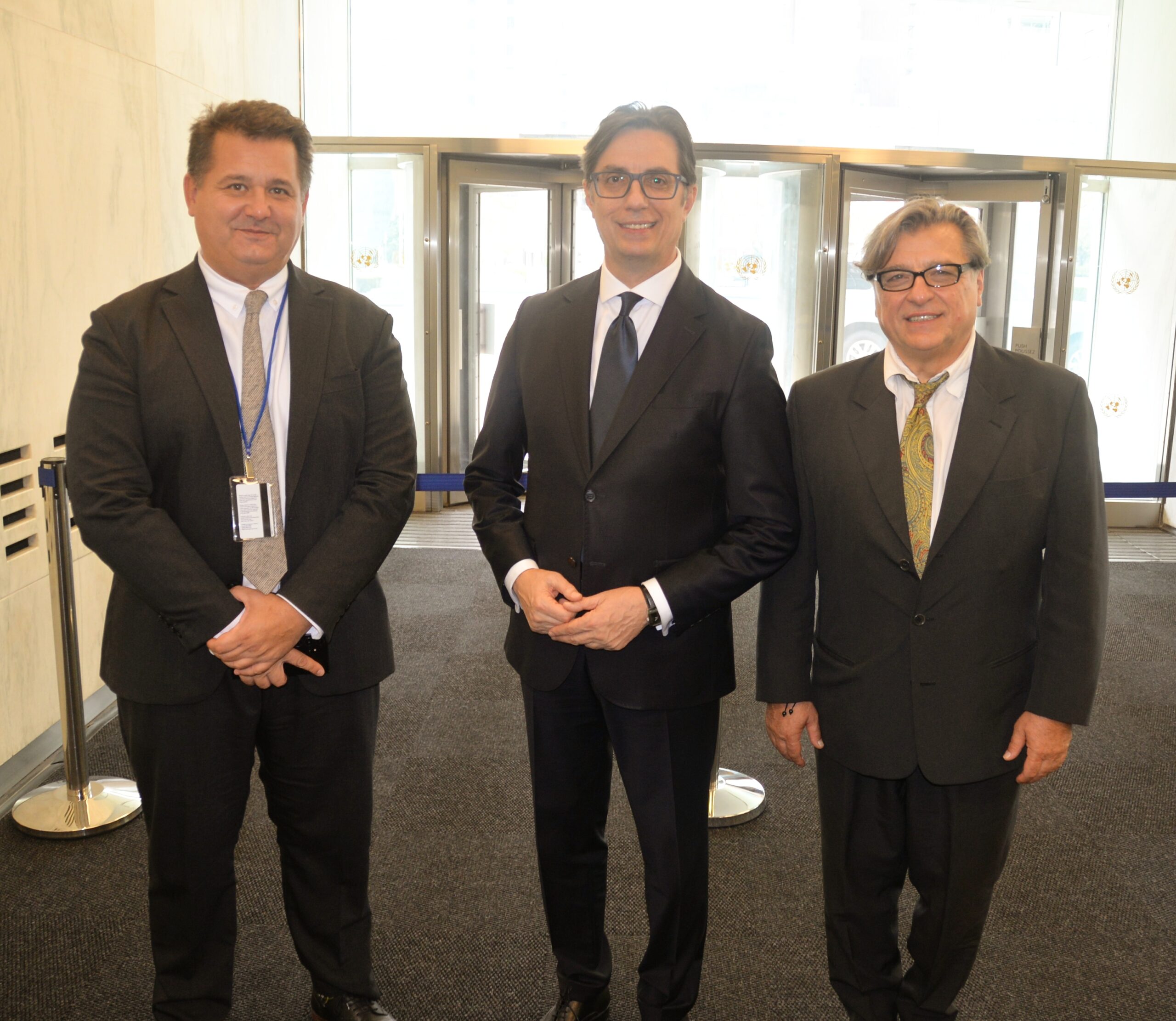Macedonian President Stevo Pendarovski at UNGA78
NEW YORK, (September 22, 2023) — Stevo Pendarovski President of North Macedonia, stated that fear of the future seems to be the predominant feeling of people today, with the international order shaken to its core. In this regard, he condemned the aggression of the Russian Federation against Ukraine a flagrant violation of the Charter of the United Nations and the principles of international law.

Expressing concern that the danger of escalation and the suffering of Ukrainians increases, he advocated for the unconditional withdrawal of the Russian military and respect for Ukrainian sovereignty and territorial integrity within its internationally recognized borders. He emphasized that all issues in the world must be resolved peacefully — by renouncing the use of force and shifting to negotiations and dialogue. “It is high time to silence the drums of war and to respect the Charter of the United Nations,” he declared.
Besides peace, resolving the current challenges also requires trust. This has been seriously undermined and the international community needs time, efforts and, most of all, political will to rebuild it, he stressed. Regardless of all differences, the world must act together in the interest of peace, stability and prosperity.

The alternatives are frightening, he warned. Turning to the food and energy supply crises caused by the war in Ukraine, he pointed out that those endangered the most are the poorest. This threatens to provoke humanitarian disasters with unprecedented magnitude in many parts of the word. He thus expressed support for the full restoration of the Black Sea Initiative. “We find it completely unacceptable to use food and energy as weapons for the realization of military or political goals,” he proclaimed. On the Sustainable Development Goals, he called for redoubling efforts aimed at their implementation.
“It is beyond understanding that, in the third decade of the twenty-first century, millions of people are left without fulfilment of elementary human needs,” he lamented. This also undermines the authority of political leaders. Recalling the global solidarity that helped Skopje recover after a devastating earthquake 60 years ago, he claimed that the essence of humanity is vulnerability to natural hazards as well as the inclination to help the weak and the suffering. He reminded world leaders that such occurrences do not know borders and the international community should thus jointly use the mechanisms at hand. South-Eastern Europe his region is also experiencing climate change first-hand through storms that verge on tornadoes. The solution by which developed economies achieve zero emissions by 2040 and provide financial and technical support to developing States is laid out in the Climate Solidarity Pact as well as the Acceleration Agenda.
At a time of geopolitical turbulences, wars, terrorism, climate change, fake news, cyberthreats and artificial intelligence, it is an urgent need to bring back predictability, early warning and prevention, he said. Internal reforms of the United Nations system are a prerequisite to this, he argued. Since its independence, North Macedonia has been committed to the principles of peace, regional cooperation and the resolution of issues through dialogue. It has affirmed the rights of ethnic communities to the highest degree possible and fostered a culture of dialogue when resolving both internal and external issues, he detailed. Skopje has perceived compromise as an expression of self-confidence to protect its interests without damaging the interests of others, he noted, detailing that his country currently chairs the Organization for Security and Co-operation in Europe (OSCE), remains a proponent of regional cooperation and strives to become a member of the European Union.



